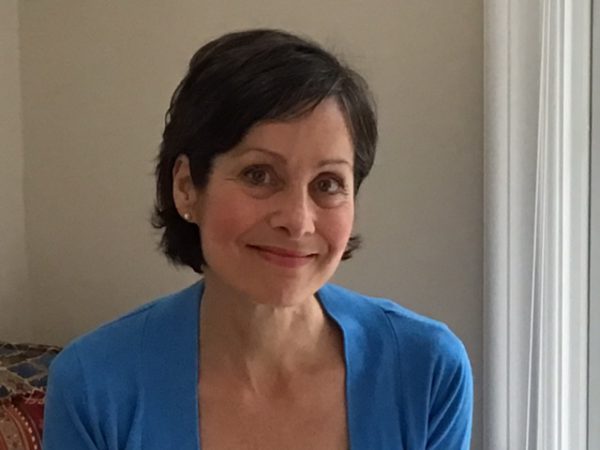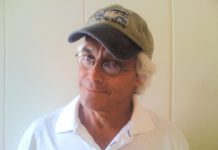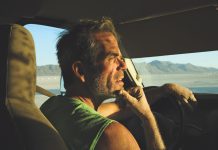
By Kathleen Hayes
Aliso Beach in Laguna hummed with expectancy. Locals in windbreakers cradled thermoses of coffee, while others in shorts and T-shirts shivered in unusually dense midsummer fog. It was just after 7 a.m. Lines of tape created a corridor that ran from the parking lot to the surf, and people waved to each other across the divide. Young people in official T-shirts and face masks stood in the middle, placards in the sand beside them. “QUIET PLEASE,” implored one, while another read, intriguingly: “CELEBRATE.”
I was there as the guest of my mother, a donor to the Pacific Marine Mammal Center (PMMC). The PMMC rescues malnourished, injured or stranded sea lions, seals and other animals; rehabilitates them in their center in Laguna Canyon; and, if successful, returns them to the ocean. My mother has attended many such releases and I’d often longed to join her, but when she invited me, I’d hesitated. I’d just returned to Dana Point, my birthplace, from my adult life in Maryland, was raw from a breakup, and was thin, sleepless and anxious. A sea lion release seemed like a diversion for happy couples with cars and homes, not a 54-year-old imminent divorcee with nebulous career prospects and a shaky sense of belonging. My impulse was to stay behind and tend to my worries. But I’d agreed, and was now wedged between my mother and the other spectators, trying to dispel thoughts of the Delta variant and breakthrough infections among the vaccinated. Few on the beach wore masks.
A blonde woman in a PMMC T-shirt shared a biography of today’s releasee. California sea lion pup Mochi had been rescued about three months earlier from a nearby beach. He’d been seriously malnourished, but had nearly tripled his weight at the center. “I think I’m on the same diet,” a man next to me said, patting his belly. Another PMMC woman asked attendees what brought us there: docent, donor…? “Daughter,” I said, pointing to my white-haired mother. Minutes passed and people grew restive.
Finally a trailer rattled in from the Pacific Coast Highway and a large white crate was mechanically lowered onto the parking lot. Two men carried the crate onto the sand inside the tape corridor and people set about unfastening the grated metal door. Young volunteers crouched next to the crate brandishing shields, which I guessed were to prevent Mochi from fleeing to the parking lot if he had doubts about returning to the ocean. The crowd hushed, heeding the “QUIET PLEASE” placard.
At last someone flung the door open and Mochi appeared. He lumbered onto the sand on his flippers and stopped as if reflecting. He raised his head, whiskers twitching in the ocean air, then careened forward, gaining speed. A strange feeling came over me—some combination of delight tinged with dread and sadness. I’d known the purpose of this morning was to release a sea lion, but now that I’d seen Mochi, I was afraid for him. The ocean is so vast and dangerous, and he was all alone. Would he find a community of other sea lions, the fish he needed? Would he be safe from predators? I half-wanted him to come back, but he continued galloping toward the surf.
A volunteer held up the “CELEBRATE” placard, and the crowd started roaring. “Go Mochi!” people cried. I watched with the others as Mochi plunged into the surf and disappeared under a wave. I was exhilarated, yet undeniably bereft. A moment later someone shouted “There he is!” and Mochi’s brown head appeared, already very small to us on the shore. He disappeared and reappeared a couple more times, becoming smaller and smaller. Finally he vanished for the last time, becoming one with the Pacific, and we saw him no more.
I joined my mother and the others straggling back to the parking lot, wrestling with my feelings. A sense of loss remained, but most powerful was an irrepressible current of joy. Mochi was free—free to struggle and face dangers and, eventually, die; but free. And despite everything—all the pain and disease, the climate destruction, the fear and uncertainty facing us all—small as it seemed, this was indeed something to celebrate and a cause for hope.
Kathleen is a Dana Point resident.





Hi Kathleen,
I was flagged to your article from one of our volunteers at PMMC. I enjoyed reading your raw feelings associated with our patient release. Our patient releases are always bittersweet. Our ultimate goal is to get every patient that comes into PMMC back out to their ocean home. So, we are always pleased when they are able to make a full recovery. However, since they spend a good amount time with us, it is not always easy. It’s like sending your child off to school for the first time. You hope that they make friends and stay away from trouble. I wanted to reach out and see if you might be interested in volunteering. If so, I would love to speak with you about possible opportunities. Your story moved me to reach out.